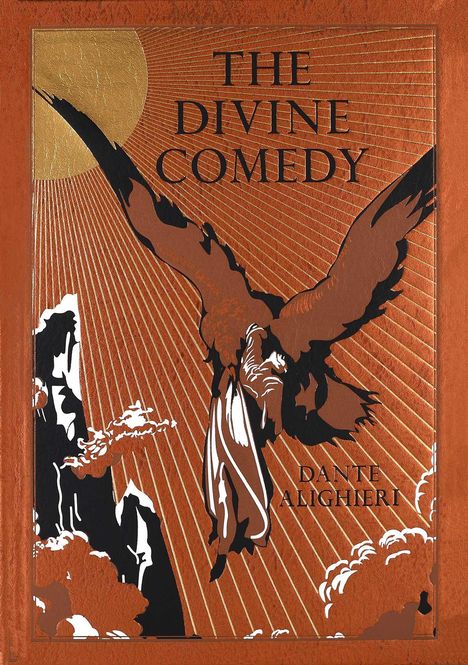Dante Alighieri: The Divine Comedy, Leder
The Divine Comedy
- Illustration:
- Gustave Dore
- Übersetzung:
- Henry Wadsworth Longfellow
- Verlag:
- Simon + Schuster LLC, 08/2025
- Einband:
- Leder
- Sprache:
- Englisch
- ISBN-13:
- 9781667211497
- Artikelnummer:
- 12159532
- Umfang:
- 664 Seiten
- Gewicht:
- 984 g
- Maße:
- 235 x 159 mm
- Stärke:
- 36 mm
- Erscheinungstermin:
- 12.8.2025
- Serie:
- Leather-Bound Classics
- Hinweis
-
Achtung: Artikel ist nicht in deutscher Sprache!
Weitere Ausgaben von The Divine Comedy |
Preis |
|---|---|
| Buch, Kartoniert / Broschiert, Englisch | EUR 23,42* |
Klappentext
Dante's epic poem of the soul's journey through the afterlife remains essential reading seven centuries after its initial publication. This edition was translated by Henry Wadsworth Longfellow.
Inferno, Purgatorio, and Paradiso---the three fates of the deceased become the three pillars of an epic poem. The Divine Comedy , written by Italian poet Dante Alighieri in the fourteenth century, is considered the foremost work in Italian literature. The journey begins with Dante's descent into the depths of Hell, where he witnesses those eternally separated from God. Then he climbs the mountain of Purgatory, where Christian souls undergo final purification, before he tours the celestial circles of Heaven, where he is filled with the image of God. An allegorical work, The Divine Comedy is representative of the soul's journey toward God. Influential for seven centuries, this classic is a must-have for lovers of great literature, and this luxurious leather-bound edition from Canterbury Classics will make a stunning addition to any home library.
Biografie (Dante Alighieri)
Dante Alighieri, geb. 1265 in Florenz, gest. 1321 in Ravenna, sah mit neun Jahren erstmals Beatrice, die er später in seinem Werk verklärt. Sein Engagement im Kampf um die Unabhängigkeit von Florenz führte 1302 zu einem Gerichtsprozess und schließlich zu lebenslänglicher Verbannung. Dante, der seitdem als vogelfrei galt, hielt sich danach vor allem in Verona auf und reiste von dort aus in viele oberitalienische Städte und Landschaften. Ab etwa 1316 ließ Dante sich in Ravenna nieder, znächst am Hofe des Cangrande della Scala, später als fürstlicher Sekretär und Lehrer für Poetik und Rhetorik.


